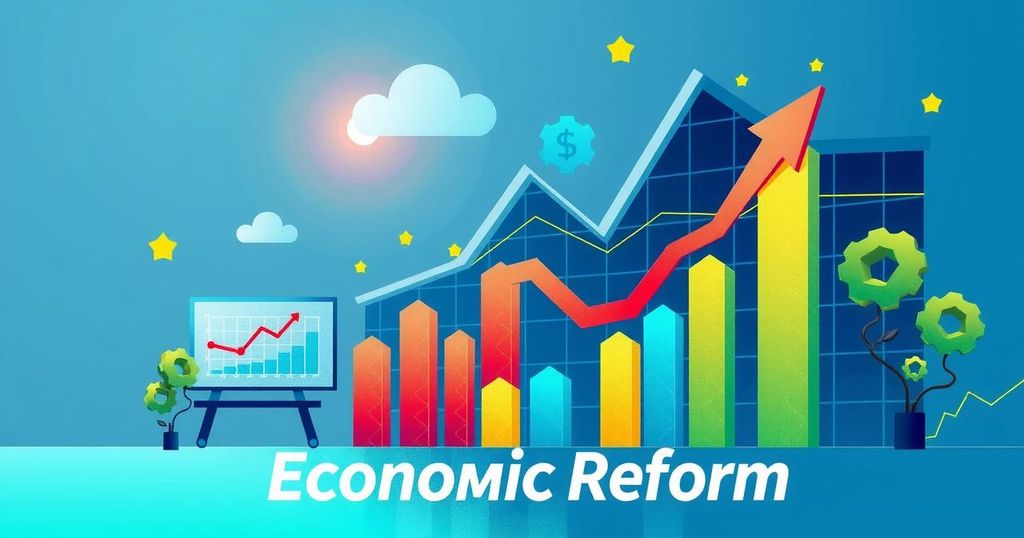Bagudu’s Budgetary Reforms: A New Era of Fiscal Accountability and Growth in Nigeria

President Bola Ahmed Tinubu’s approval of the 2025 budget underlines a commitment to enhanced fiscal governance. Abubakar Bagudu, with his extensive experience, has effectively navigated legislative processes, prioritizing budget allocations that support economic recovery and job creation. The implementation of measures aimed at transparency and accountability further fortifies the ministry’s role in driving sustainable growth in Nigeria.
President Bola Ahmed Tinubu’s recent approval of the 2025 budget signifies a pivotal moment in fiscal governance, showcasing his administration’s dedication to enhancing budgetary processes. Despite a two-month delay compared to 2024, the review and legislative approval processes have markedly improved under the current administration.
The Minister of Budget and Economic Planning, Abubakar Bagudu, who assumed office in August 2023, has exhibited strong fiscal oversight by deftly navigating the legislative challenges to ensure the approval of the 2024 budget by January 2024. His extensive background in economic planning and governance significantly contributed to this efficiency.
The 2025 budget, referred to as the “Budget of Restoration,” provides a framework for fiscal policy implementation across governmental ministries, departments, and agencies (MDAs). As the administration nears its second year, an assessment of the Ministry’s effectiveness in fostering economic recovery, job creation, and poverty alleviation is crucial.
Abubakar Bagudu elucidates that the budget allocations focus on six national priorities, which include economic growth, food security, poverty alleviation, access to capital, skill enhancement, and anti-corruption. Evaluating the impact of these budgetary measures on employment and poverty reduction is essential for measuring overall effectiveness.
In his 2023 performance report, the minister highlighted the ministry’s alignment with the National Poverty Reduction and Growth Strategy (NPRGS), which successfully generated 67,038 jobs across all states during its initial implementation phase. Furthermore, geospatial analytics and insights from the Multidimensional Poverty Index (MPI) Report are being employed to enhance policy design and access to essential social services.
The Ministry also successfully coordinated the NG-CARES program, which addresses the needs of vulnerable populations affected by the COVID-19 pandemic. Approximately seven million poor and vulnerable households across 35 states and the FCT have benefitted from this initiative, underscoring the government’s commitment to social stability.
Despite prevailing skepticism regarding data integrity, Minister Bagudu has prioritized fiscal accountability and transparency. Under his leadership, the National Bureau of Statistics (NBS) maintains its independence, ensuring timely data releases that are critical for informed policy-making.
Strategically, Bagudu’s administration has innovatively allocated resources within the national budget, designating N4.06 trillion towards infrastructure development. This funding aims to advance significant projects, including the Abuja-Kaduna railway and Lagos-Ibadan rail line projects, signifying an unprecedented commitment to infrastructure in recent times.
Furthermore, notable funding has been assigned to the defense and security sectors, education, and health—demonstrating a comprehensive approach to national priorities. It is important to remark that the allocation to health represents the highest percentage since 2001.
Bagudu’s team has also launched the “Eyemark” application, facilitating public tracking and accountability of government-funded projects, with over 500 federal projects monitored to ensure proper execution and value for money. This initiative reflects a commitment to transparency in the budget’s implementation.
Bagudu’s leadership reveals a transformative period characterized by fiscal accountability, strategic planning, and responsiveness to economic demands. The 2025 budget serves as a vital financial framework aimed at stimulating economic recovery, fostering job creation, and enhancing social development. Through these efforts, Bagudu’s tenure showcases a steadfast commitment to restoring fiscal stability in Nigeria.
In conclusion, Abubakar Bagudu’s effective management of the 2025 budget and related initiatives marks a transformative approach to fiscal governance in Nigeria. With a strong focus on employment, poverty alleviation, and infrastructure, combined with a commitment to transparency and strategic allocation, the Ministry of Budget and Economic Planning is positioned to play a pivotal role in enhancing Nigeria’s economic landscape. The ongoing evaluation of these reforms will be crucial for sustaining growth and achieving long-term fiscal stability.
Original Source: businessday.ng








